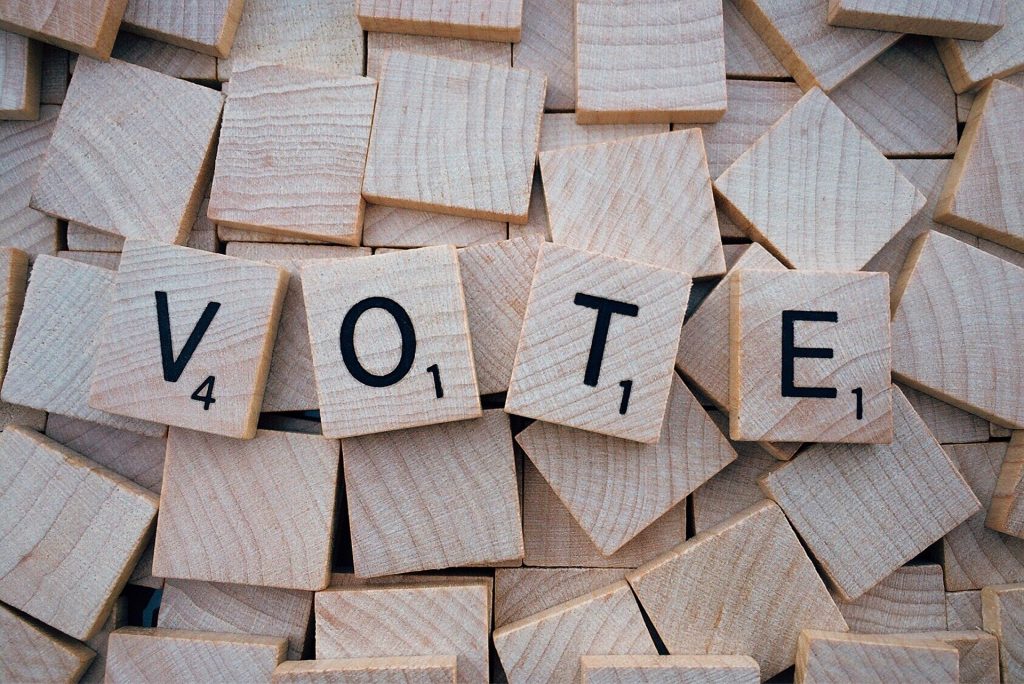Habits of Millennial voting lives up to stereotype
3 min read
Pixabay
By Jonathon Myers
On March 1, according to an article in Bustle, well over a million people showed up to vote on Super Tuesday in the state of Virginia. Around 800,000 people voted in the Republican primary and more than 575,000 people voted in the Democratic primary. I was not one of those people. Call it apathy, or call it whatever you like. I did not vote. I simply did not care enough.
The Bloomberg View said that three out of 10 voting age Americans are Millennials, making us the largest voting demographic. Despite the massive presence in the eligible voting age range, nearly 20 percent of the Millennial voting demographic participated in last year’s midterms, dropping from the average of 26.6 percent for the same age range in other midterm elections over the last 40 years, according to the Washington Post.
However, this election year more young people are getting interested in politics than in the 2008 election of President Obama. A wild-haired, 72-year-old Brooklynite has young people all over the country ‘feeling the Bern.’ Boasting the only presidential campaign for the 2016 election that is powered by regular people rather than bankrolled by corporate interests, Senator Bernie Sanders has stolen the hearts of Millennials disillusioned by the promises of capitalistic endeavor in favor of something a little different.
While the hype for Sanders continues to build, one can’t help but feel a little concerned about the flakiest demographic of voters.
“I think people are pretty mobilized, but I don’t know the data. I’m afraid that the apathy will kick in during the national election because if Hillary wins the nomination, some Bernie supporter might sit out and that’s how Trump becomes president,” said English major Maria Schleh.
A valid concern, as Hillary lacks the Millennial support Sanders has. In Iowa and New Hampshire, Sanders ran away with over 80 percent of the Millennial vote according to the Boston Globe. Without their champion, will the upsurge of political activism just fade into a passing fad? Not necessarily.
“I do think people are saying that if Bernie isn’t running they won’t bother to vote, but I think if Trump becomes the opposing candidate they might vote for fear of getting him as a president,” said English major Saleha Malik.
It all comes back to the “T” word. Even if Millennial apathy proves stronger than “the Bern,” will it be stronger than fear of the alternative? According to MSNBC, only 17.5 percent of young people view Trump favorably. Despite not getting the youth vote, Trump is enjoying some pretty hefty popularity from older voters, and it seems almost imminent that he will take the Republican nomination from his rivals. How will Millennials react then?
As a Millennial disinterested in voting myself, I’m not sure how to answer that. I don’t feel as though I support any of the candidates enough to mobilize myself into action. If Trump’s massive popularity despite his outrageous behavior is of any indication, the fate of this country lies outside of the hands of people like me no matter what.
But, again, young people are currently the largest voting demographic. Millennial apathy is a problem, I know. I recognize it because I live with it. However, if people like me sit around and do nothing, we can’t really complain about what we get as a result.



Apathy will allow Trump to win. Yes, while you have the mindset that “the fate of this country lies outside of the hands of people like me no matter what,” so do 80% of Millenials. That’s how Trump will win, because it’s that mindset that people think only they have, and then it spreads until 80% of Millenials aren’t voting.
Start educating yourself. This is a pivotal election, Jonathon.